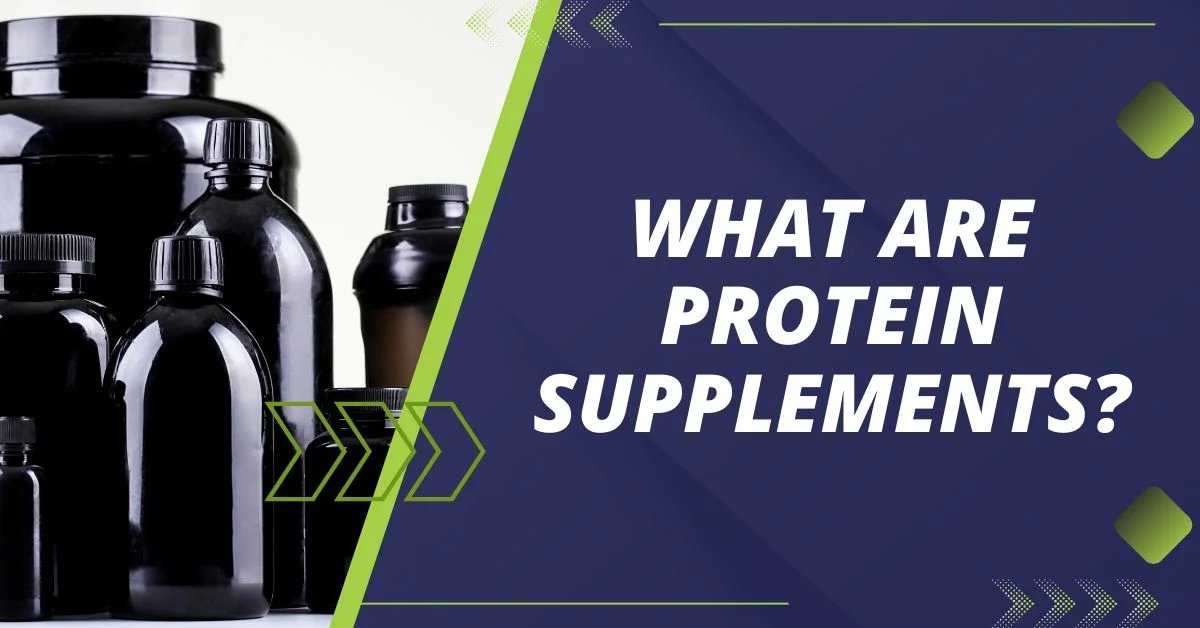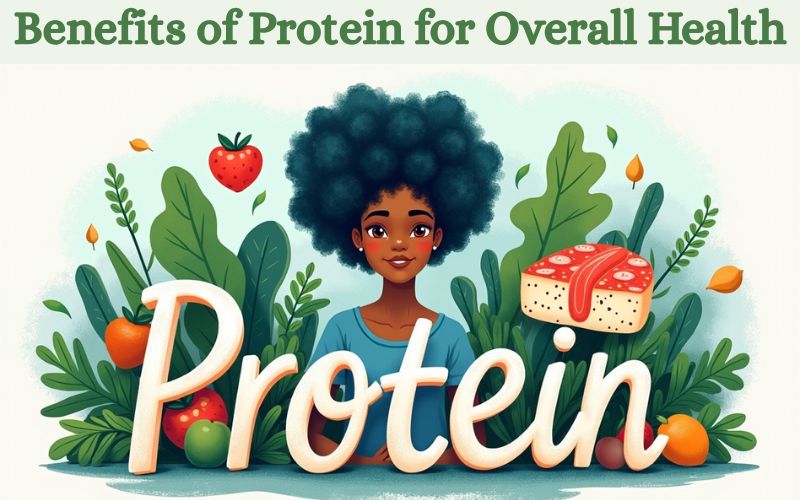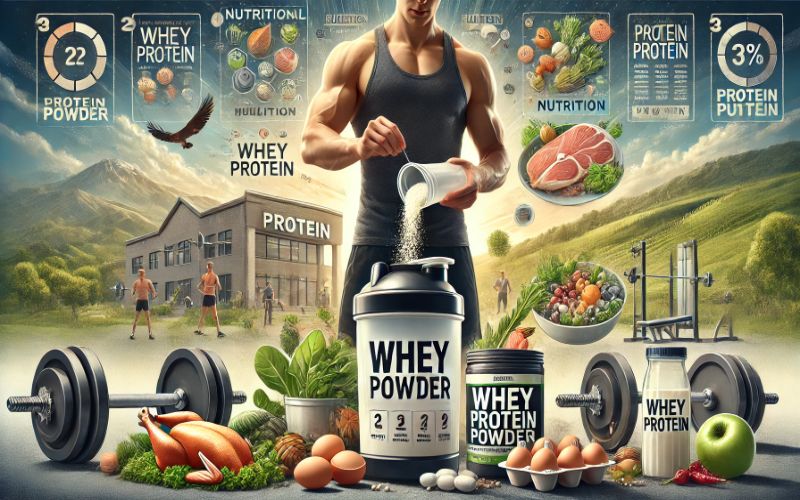Protein supplements have become an integral part of fitness and health routines worldwide, offering a convenient and efficient way to meet daily protein requirements. As the awareness of the importance of protein in muscle building, recovery, and overall well-being grows, so does the variety of protein supplements available in the market.
These supplements cater to a diverse audience, including athletes, bodybuilders, vegetarians, vegans, and individuals seeking to enhance their dietary intake. Understanding the different types of protein powders, their uses, benefits, and how to incorporate them into your diet can help you make informed decisions to achieve your health and fitness goals effectively.
Table of Contents
Uses of Protein Supplements
Protein supplements serve multiple purposes beyond just muscle building. They are pivotal in enhancing athletic performance by providing the necessary amino acids that support muscle contraction and endurance. For those aiming to manage their weight, protein supplements can aid in satiety, reducing overall calorie intake by keeping hunger at bay.
Vegetarians and vegans often turn to protein supplements to ensure they receive adequate protein without relying on animal-based sources. Additionally, protein supplements have medical and therapeutic applications, such as supporting recovery in patients with muscle-wasting diseases or those recovering from surgeries. Their versatility makes them a valuable addition to various dietary and health regimens.
Types of Protein Powder
The market offers a wide array of protein powders, each with unique characteristics tailored to different dietary needs and fitness goals. Below are some of the most popular types of protein powders and their benefits:
Whey Concentrate
Whey concentrate is popular for its high protein content and rich amino acid profile, making it ideal for post-workout recovery. It’s one of the most commonly used protein powders among athletes and fitness enthusiasts due to its effectiveness in promoting muscle growth and repair.
Whey Isolate
Whey isolate is more refined than whey concentrate, containing a higher percentage of protein with minimal fats and carbohydrates. This makes it suitable for individuals looking to minimize calorie intake while maximizing protein consumption. It’s a great option for those who are lactose-sensitive.
Casein Protein
Casein protein is known for its slow digestion rate, providing a steady release of amino acids over an extended period. This characteristic makes it particularly beneficial for overnight muscle repair, making it a popular choice for athletes who want to maintain muscle protein synthesis during sleep.
Soy Protein
Soy protein is a favorite among vegetarians and vegans due to its plant-based origin and complete protein profile. It provides all essential amino acids, making it a great option for those following a plant-based diet who still want to ensure they are meeting their protein requirements.
Egg White Protein
Egg white protein offers a high-quality alternative with zero fat and lactose, making it ideal for individuals with lactose intolerance or those seeking a lean source of protein. It’s also a good option for those looking for a fast-digesting protein source without any added fats or sugars.
Pea Protein
Pea protein is gaining traction due to its hypoallergenic properties and sustainability. It’s suitable for those with food sensitivities and is also favored by individuals seeking a plant-based protein source that’s rich in essential amino acids, especially lysine.
Hemp Protein
Hemp protein provides additional benefits beyond just muscle support. In addition to protein, it contains omega fatty acids and fiber, making it a well-rounded option for those looking to improve overall health while supporting muscle growth and recovery.
Collagen Protein
Collagen protein has emerged as a popular choice not only for muscle recovery but also for enhancing skin, hair, and joint health. It contains amino acids that specifically target tissue repair, making it beneficial for those with active lifestyles or those looking to improve skin elasticity and joint function.
Plant-Based Protein Blends
Plant-based protein blends combine various plant proteins such as pea, rice, hemp, and chia to create a more balanced amino acid profile. These blends offer the advantage of providing a complete protein source for vegans and vegetarians, without relying on animal-based products.
Each type of protein powder offers unique benefits, allowing individuals to select the one that best fits their dietary preferences and fitness goals.
How to Use Protein Powder Supplements
Incorporating protein powder supplements into your daily routine requires understanding the recommended dosages and optimal consumption times.
- Typically, a serving size ranges from 20 to 30 grams of protein, but this can vary based on individual needs and activity levels.
- The best times to consume protein powder include post-workout to aid in muscle recovery, in the morning to kickstart your metabolism, or as a snack to maintain energy levels throughout the day.
- Protein powders can be mixed with water, milk, or plant-based alternatives and can also be blended into smoothies, oatmeal, or baked goods to enhance their nutritional content.
- Experimenting with different recipes and combinations can make protein supplementation enjoyable and seamlessly integrated into your meals.
Benefits of Protein Supplements
Protein supplements offer a multitude of benefits that extend beyond muscle growth and recovery. They play a crucial role in supporting muscle protein synthesis, which is essential for hypertrophy and maintaining lean muscle mass.
Adequate protein intake also facilitates muscle recovery by reducing soreness and enhancing the repair of muscle tissues post-exercise. Beyond physical performance, protein supplements contribute to weight management by promoting satiety, thereby helping control appetite and reduce overall calorie consumption.
Additionally, protein is vital for immune support, as it aids in the production of antibodies and other immune cells. For those concerned with skin and hair health, collagen and keratin-rich protein supplements can improve skin elasticity, reduce wrinkles, and strengthen hair follicles, contributing to a healthier appearance.
Potential Side Effects and Considerations
While protein supplements are generally safe for most individuals, it is important to be aware of potential side effects and considerations.
- Some people may experience allergies or intolerances to certain protein sources, such as dairy-based whey or soy proteins.
- High protein intake can also put a strain on the kidneys and liver, especially in individuals with pre-existing conditions, necessitating medical consultation before starting supplementation.
- Digestive issues like bloating, gas, and stomach cramps can occur, particularly with certain types of protein powders like whey concentrate, which contains lactose.
- Additionally, protein supplements may interact with certain medications, so it is advisable to review your medications with a healthcare provider to avoid adverse interactions.
- Being mindful of these factors ensures safe and effective use of protein supplements.
Choosing the Right Protein Supplement
Selecting the right protein supplement involves assessing your dietary needs, fitness goals, and personal preferences. Start by evaluating your protein requirements based on factors such as age, gender, weight, and activity level.
Understanding the ingredients and reading labels carefully can help you choose a product that aligns with your health objectives, whether it’s minimizing sugar intake, avoiding artificial additives, or selecting a specific protein source.
Taste and mixability are also important considerations, as a palatable and easily mixable protein powder is more likely to be consistently used. Additionally, evaluating the reputation of the brand and looking for certifications, such as third-party testing for quality and purity, can ensure you are purchasing a reliable and trustworthy product.
Protein Powder Price in Pakistan
The cost of protein powder in Pakistan varies widely based on the brand, type, and quality of the product. Prices can range from affordable options for basic whey concentrates to premium prices for specialized blends like plant-based or collagen proteins.
- Factors affecting the cost include the source of the protein, manufacturing processes, added ingredients, and brand reputation.
- To find the best value, consumers should compare different brands and consider factors such as ingredient quality, protein content per serving, and additional benefits offered by the product.
- Shopping online often provides a wider selection and competitive pricing compared to in-store options, though it’s important to purchase from reputable retailers to ensure product authenticity and quality.
Latest Trends in Protein Supplements 2024
The protein supplement industry continues to evolve, embracing trends that cater to the growing demand for sustainability, personalization, and innovation. Sustainable and eco-friendly protein sources, such as plant-based and insect proteins, are gaining popularity as consumers become more environmentally conscious.
Personalized and customized protein blends are also on the rise, allowing individuals to tailor their supplements to their specific nutritional needs and fitness goals. Innovations in protein delivery, such as ready-to-drink shakes and protein-infused snacks, offer greater convenience and versatility for users with busy lifestyles.
Additionally, functional proteins that incorporate added nutrients like vitamins, minerals, and probiotics are becoming mainstream, enhancing the overall health benefits of protein supplements and catering to a more holistic approach to nutrition.
Conclusion
Protein supplements play a pivotal role in modern fitness and health regimens, offering a versatile and convenient means to meet dietary protein needs. With a wide variety of options available, ranging from whey and plant-based proteins to specialized blends like collagen and hemp, individuals can find the perfect supplement to support their unique goals.
Understanding the benefits, potential side effects, and how to effectively incorporate protein powders into your diet ensures that you can maximize the advantages while minimizing any risks. As the industry continues to innovate and adapt to emerging trends, staying informed and choosing high-quality products will help you achieve optimal health and performance outcomes.
FAQs
What is the best time to take protein powder for muscle gain?
The optimal time to take protein powder for muscle gain is typically post-workout, as it helps in muscle recovery and growth. However, consuming it in the morning or as a snack throughout the day can also support your protein intake needs.
Can I take protein supplements if I am vegetarian or vegan?
Yes, there are several plant-based protein supplements available, such as soy, pea, hemp, and blended plant proteins, which are suitable for vegetarians and vegans.
Are there any side effects of taking protein powder?
While generally safe, some individuals may experience digestive issues, allergies, or strain on the kidneys and liver with excessive intake. It is important to choose the right type and consult with a healthcare provider if you have any health concerns.
How much protein should I consume daily?
The recommended daily protein intake varies based on factors like age, gender, weight, and activity level. On average, adults may need around 0.8 grams of protein per kilogram of body weight, but athletes and those engaging in intense training may require more.
Where can I buy high-quality protein supplements in Pakistan?
High-quality protein supplements can be purchased from reputable online retailers, specialized health stores, and authorized brand outlets in Pakistan. Always ensure you are buying from trusted sources to guarantee product authenticity.


























